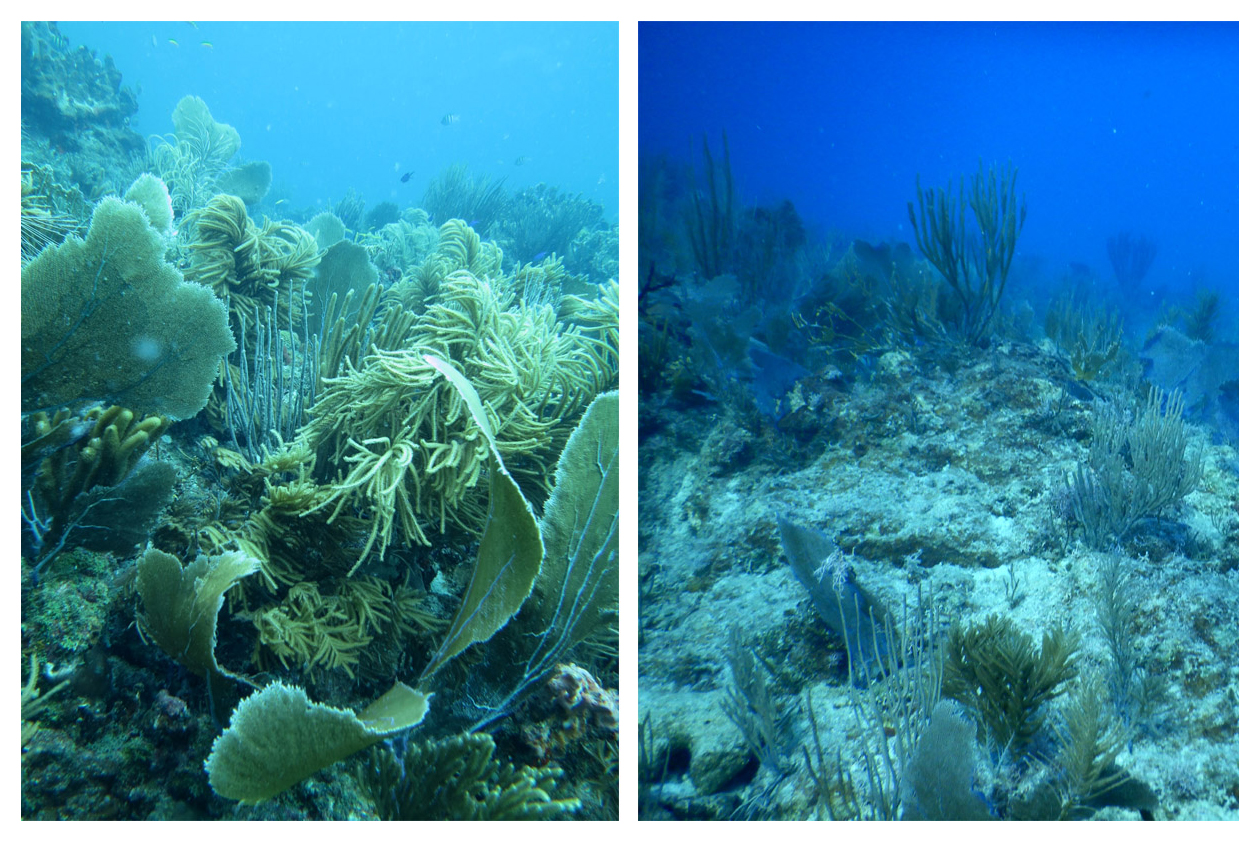
Despite hurricane damage, coral reefs remain resilient
In 2017, Hurricanes Maria and Irma caused millions of dollars in damage in the Caribbean and Florida, but that’s just above the surface.
Ocean ecosystems also suffered damage brought on by storm surges, strong currents, and high winds.
Coral reefs in the U.S Virgin Islands were hit particularly hard. But a research team that had already been studying the area’s corals for years has found that the hurricanes, while devastating to the corals, also presented a unique opportunity to monitor how corals recover from major harm.
The image above shows before and after views of a coral reef just off the coast of St. John in the U.S. Virgin Islands.
The team was led by Howard Lasker, a professor of Geology at the University at Buffalo, and Peter Edmunds, a biology professor from California State University, Northridge.
“It’s an interesting natural experiment,” Lasker said. “You could not, in good conscience, conduct such an experiment on your own as a scientist, and it is sad to see these beautiful places in the ocean damaged so severely. But we can learn from this — it gives us the chance to better understand the process of recovery.”
The research team spent two weeks observing the corals while aboard the F.G. Walton Smith research vessel.
The coral colonies told a sad story, with some colonies lacking branches, other coral had infestations of bacteria and harmful algae, and in some parts of the reef whole colonies of coral had been wiped out.
“Hurricanes generate huge waves. The effect is like sandblasting — the waves carry sand and debris, such as bits of broken coral, onto the reefs, striking them over and over again,” said Lasker.
Even though the damage was apparent and widespread, the researchers were encouraged by how much of the reef remained.
Lasker and Edmunds plan to observe the reef over time and monitor its rate of recovery.
Coral reefs are a major part of the ecosystem and many tourism-driven economies. However, reefs are facing staggering bouts of bleaching and losses due to climate change, warming ocean waters, ocean acidification, and fishing operations.
Understanding how quickly reefs recover, and determining if injured colonies simply die off or grow back, will better help researchers grasp the scope of climate change and its impact on the ecosystem.
“These are magnificent ecosystems,” said Lasker, “and we really know very little about how they change and recover after disasters.”
—
By Kay Vandette, Earth.com Staff Writer
Credit: Howard Lasker













